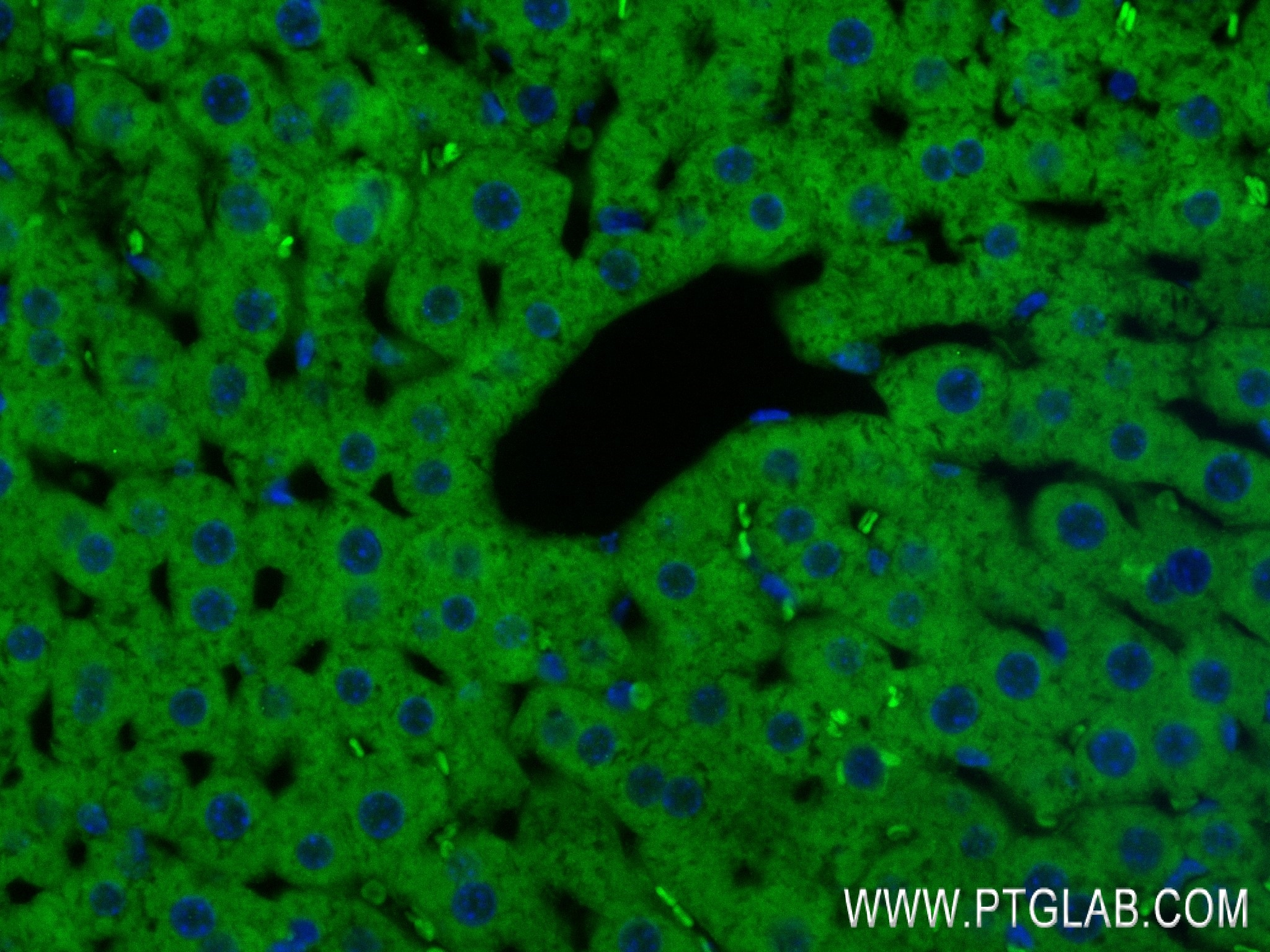Validation Data Gallery
Tested Applications
| Positive IF-P detected in | mouse liver tissue |
Recommended dilution
| Application | Dilution |
|---|---|
| Immunofluorescence (IF)-P | IF-P : 1:125-1:500 |
| It is recommended that this reagent should be titrated in each testing system to obtain optimal results. | |
| Sample-dependent, Check data in validation data gallery. | |
Product Information
84752-1-RR targets Caspase 1 in IF-P, ELISA applications and shows reactivity with human, mouse samples.
| Tested Reactivity | human, mouse |
| Host / Isotype | Rabbit / IgG |
| Class | Recombinant |
| Type | Antibody |
| Immunogen | Peptide 相同性解析による交差性が予測される生物種 |
| Full Name | caspase 1, apoptosis-related cysteine peptidase (interleukin 1, beta, convertase) |
| Calculated molecular weight | 404 aa, 45 kDa |
| GenBank accession number | BC062327 |
| Gene Symbol | Caspase 1 |
| Gene ID (NCBI) | 834 |
| RRID | AB_3672135 |
| Conjugate | Unconjugated |
| Form | Liquid |
| Purification Method | Protein A purfication |
| UNIPROT ID | P29466 |
| Storage Buffer | PBS with 0.02% sodium azide and 50% glycerol{{ptg:BufferTemp}}7.3 |
| Storage Conditions | Store at -20°C. Stable for one year after shipment. Aliquoting is unnecessary for -20oC storage. |
Background Information
CASP1(caspase-1) is also named as IL1BC, IL1BCE and belongs to the peptidase C14A family. It is a cysteine protease that regulates inflammatory processes through its capacity to process and activate the interleukin-1-beta (IL1B), IL18, and IL33 precursor proteins. The active caspase-1 can increase cellular membrane permeability and intracellular calcium levels, which facilitates lysosome exocytosis and release of host antimicrobial factors and microbial products (PMID:21804020). It has 5 isoforms produced by alternative splicing.
Protocols
| Product Specific Protocols | |
|---|---|
| IF protocol for Caspase 1 antibody 84752-1-RR | Download protocol |
| Standard Protocols | |
|---|---|
| Click here to view our Standard Protocols |
